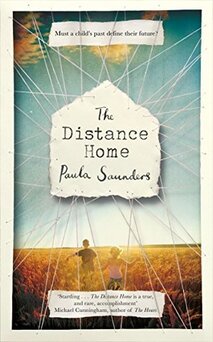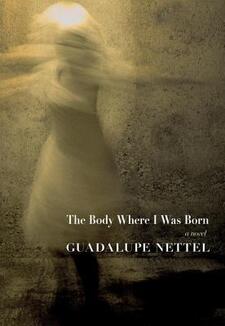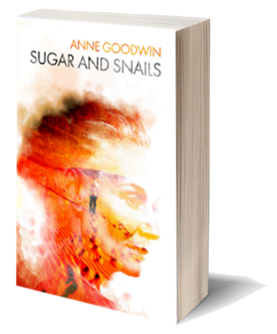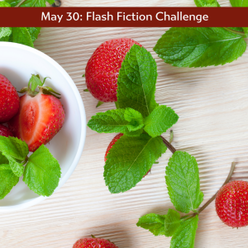The Distance Home by Paula Saunders
Pity the child who doesn’t know how to protest, compelled to bury his frustrations inside. While both brother and sister fall victim to their parents’ preferences and prejudices, and their increasingly frequent fights, Leon is the most damaged initially. No-one knows what to do when he starts pulling out the hair from his eyebrows and lashes, and a patch on the top of his head.
Eve tries to support him, as she’s actively supported his passion for ballet from early childhood, but that’s anathema to his father, and to most of the farming and cattle-ranching community he knows. René is also a dancer but, as a girl, her talent fits the gender stereotype and doesn’t cause offence. Even so, she doesn’t have an easy ride of it, subject to envious attacks from both her mother on account of her father and grandmother’s devotion and from her schoolmates for her confidence and her cleverness that puts her at the top of the class. She might be able to wrap her father around her little finger, but he’s rarely around. Her brother’s suffering also distresses her, leaving her wracked with guilt that she’s powerless to protect him, and that, at least early on in her life, things seem more straightforward for her.
I admired this novel for its honest depiction of the mix of love, righteousness and quiet violence of many a family life. The psychological territory being so familiar to me, however, I found it difficult to evaluate its literary merit. At times it read like an extended case history, although other readers might not experience it this way.
Take an ordinary couple with ordinary human flaws. They want to make a family and are blind to the reasons they’re not up to the task. Take a child with ordinary vulnerabilities that nevertheless get up one or the other parent’s nose. Their well-intentioned attempts to fix the problem miss the point and only make things worse. By the time the child reaches adolescence the disturbance has escalated, and the parents are the last people who could possibly put things right. But still they try, because that’s their job, and there’s no-one else to help. The concern they feel is genuine but, without confronting their own contribution to the difficulties, it’s not enough.
| This is a theme of my previous clinical work, and of my own debut novel, Sugar and Snails, which I’ve been rereading for an event, and to rehash the blurb. Would Diana’s life have been easier with different parents, a couple more able to work as partners in the task of raising a family, individuals less afraid of the challenge her difference raised? Could she have had a less painful adolescence, with less need to self-harm? Could she, like both Leon and René, have avoided leaving home at fifteen? |
Paula Saunders’ debut was published in the US last year. I received my review copy courtesy of UK publishers Picador.
The Body Where I Was Born by Guadalupe Nettel translated by JT Lichtenstein
While wide open in some areas, her mother – by this point her parents had divorced – was withholding in others, even when the painful truth would have stung less than a lie. So when her visits to her father stopped abruptly, of course she assumed he didn’t care. Later, when the mother moved to France to further her career, she left the girl and her brother in the custody of their grandmother, despite them having opposing opinions on how to raise a child.
The author brings a touch of humour to the fictionalised account of her own muddled upbringing, despite the evident pain. It’s framed as an outpouring to her therapist, who unfortunately doesn’t meet the criteria for my series because they never answer back. I enjoyed this, the first of the award-winning Mexican author’s novels to appear in English. Published in 2015 by Seven Stories Press, I bought my own copy.
| My imagination doesn’t stretch far enough to link these reviews with this week’s 99-word story. So I won’t try. My contribution works best if you are unaware what the prompt is, although the image does give you a clue. Click on that to see what the challenge was, and how other writers around the world have responded. |
Her taste is traditional, her habit a herb. Whereas he was weaned on fruity flavours and won’t give them up. When they kissed for the first time, their breath was tinged with garlic; tomato and marjoram layered underneath. Neither of them noticed, having picked the same starter and main. At the time, she thought that signalled they’d be soulmates; she happily skipped desert to go back to his flat. Now, rummaging through her washbag, she wonders. When her torso presses closer, her mouth might pull away. Afraid his cloying strawberry toothpaste would defeat her clean fresh shield of mint?

























 RSS Feed
RSS Feed





















